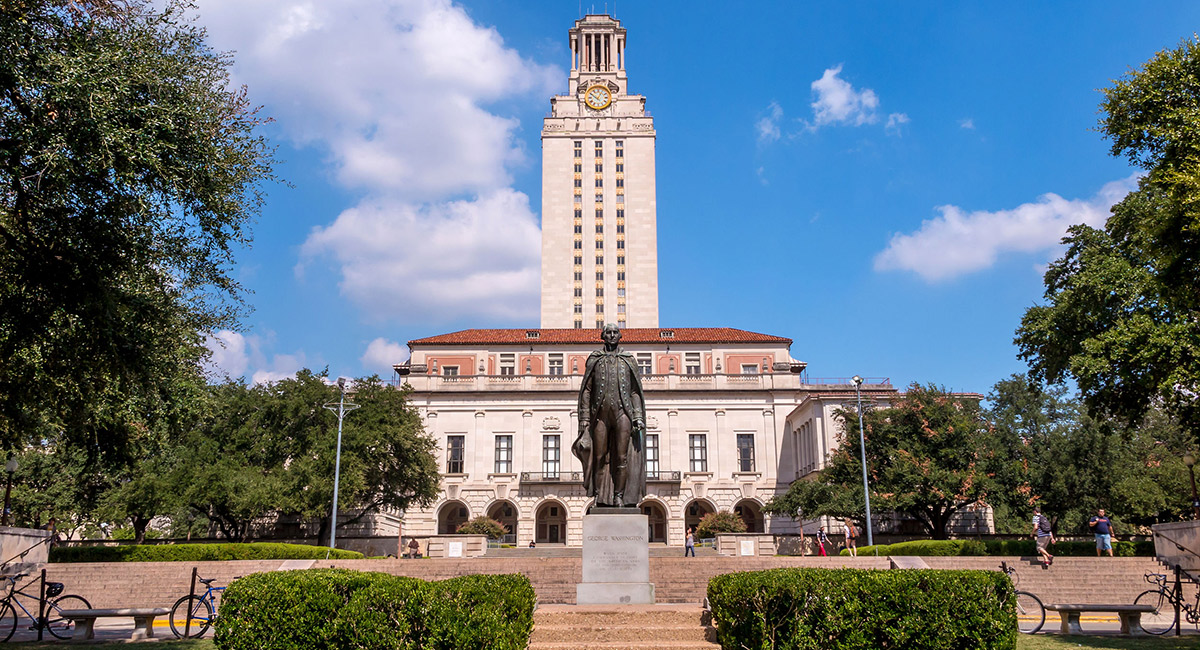In a nation whose prominent universities mostly have a strong left-of-center orientation, some outsiders, especially wealthy donors, often try to bribe schools into increasing the amount of intellectual diversity. This can lead to real battles. Two examples in recent days: East Coast Ivy League Yale University and the more mid-America public University of Texas.
At Yale, my longtime friend and former colleague, the distinguished diplomatic historian John Gaddis, helped start the Brady-Johnson Grand Strategy program. The current director, Beverly Gage, has made the program more politically correct by insisting that social justice issues be part of a curriculum that normally does things like looking at great power relationships, global peace initiatives, the relevance of realpolitik in today’s world, and similar issues. The two major donors started complaining that their intent is being ignored, pointing out that Yale had not even deigned to appoint an advisory committee, specified in the donor agreement, to help select course teachers and speakers. When Gage heard that Yale planned to appoint members of the advisory board recommended by the donors that included Henry Kissinger, she resigned, (Was Kissinger too inexperienced in foreign policy for her tastes?)
Yale President Peter Salovey, who rarely fails to disappoint, opined, according to the Economist, that he was “genuinely sorry that she [Gage] did experience more unsolicited input from donors than faculty members should reasonably be expected to accept.” Apparently donors should be seen but not heard, especially conservative donors lacking the woke credentials necessary to be a respected part of the campus community. Should these Campus Untouchables, plutocratic donors with traditional American values who, in this case, believe in a strong America, have any role on campus?
Moving west, I spent some time very recently in Austin, Texas with more Campus Untouchables, professors associated with the esteemed National Association of Scholars. There I learned of efforts among conservative faculty and some politicians to bring more intellectual diversity to the University of Texas. Several related ideas are circulating, including one endorsed by the UT administration to create a Liberty Institute spreading appreciation for the virtues of competitive free market capitalism. That institute would apparently receive a mix of public and private funding; several prominent Texas business leaders are intimately involved in the planning.
This, of course, is creating a bit of a contretemps. A prominent student leader on the Austin campus, Steven Ding, is quoted by the Texas Tribune as saying, “Donors are slowly trying to reach into higher education in the state against the will of the people on campus: the students, the faculty and the staff...there are so many other institutional priorities for us.” Clearly Mr. Ding seems to be saying, “the students, faculty and staff own the university. You don’t, so shut up and stop complaining.”
Beside the decidedly progressive UT campus community, Austin is a center of unbridled American capitalism, the home to entrepreneurs like Elon Musk (a refugee from high-tax and ultra-woke California) and Michael Dell. So naturally there are rumors of efforts (one called the University of Austin) to offer something other than the prevailing UT narrative. Perhaps the way to circumvent the entrenched opposition of professors and others who feel (not totally without justification) that they ARE the university is to start entirely new and in a sense competing institutions. There are some rumors about creating a Hillsdale College-style institution that rejects any and all forms of government assistance. Stay tuned.
University presidents face a huge conflict. To remain popular, they must raise buckets of money to please campus constituencies clamoring for resources, so they welcome and plead for private donations, even ones for supporting activities that seem unimportant or even unwelcome, as long as they can siphon off some overhead funds for their needs. But they threaten to antagonize loud constituents, especially students, faculty, and activist student affairs administrators. What to do? They sometimes try to have it both ways, occasionally forgetting that with a murky ownership structure, control of the institution is sometimes pretty tenuous. Both Yale and UT have been through this before, and while both will survive any current brouhaha, the “controlling stockholders” are subject to change, and with that, institutional zeitgeist and leadership.












